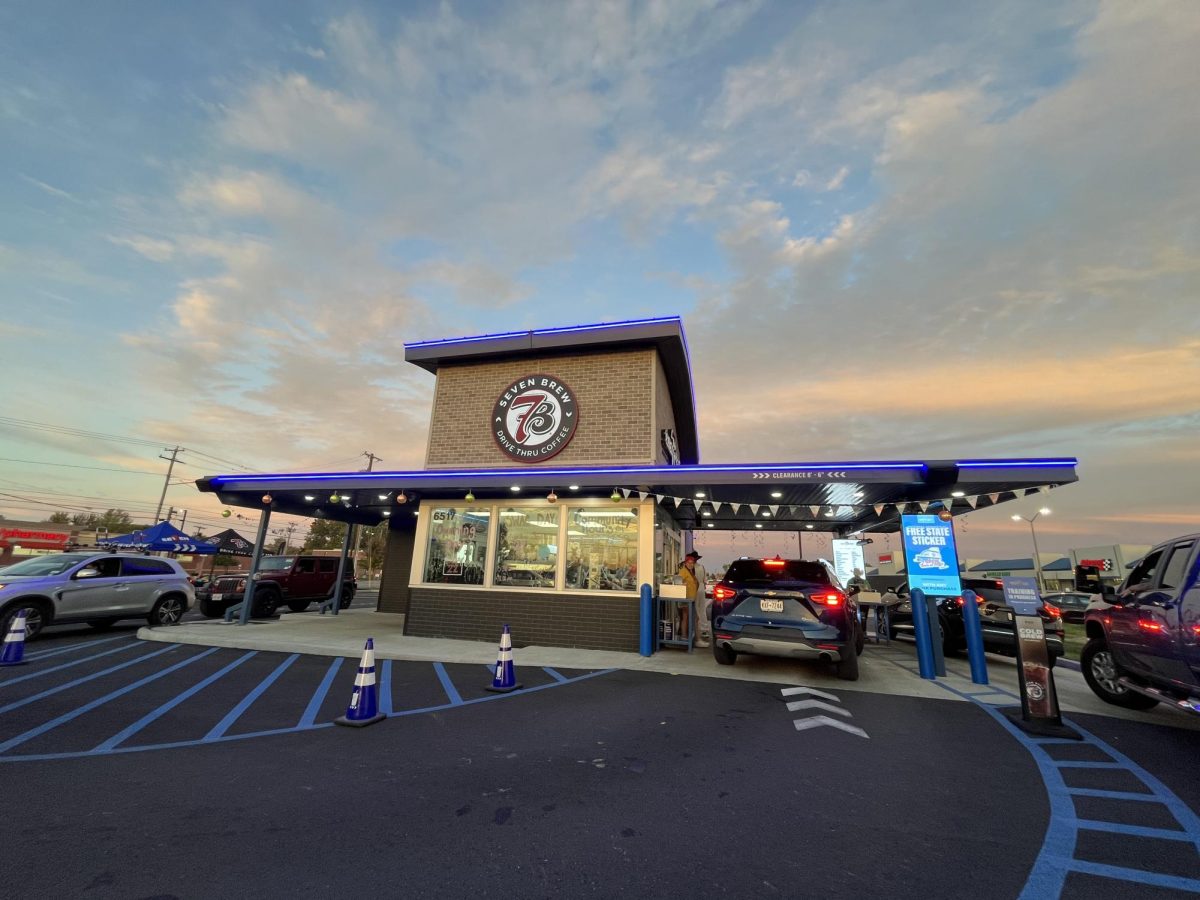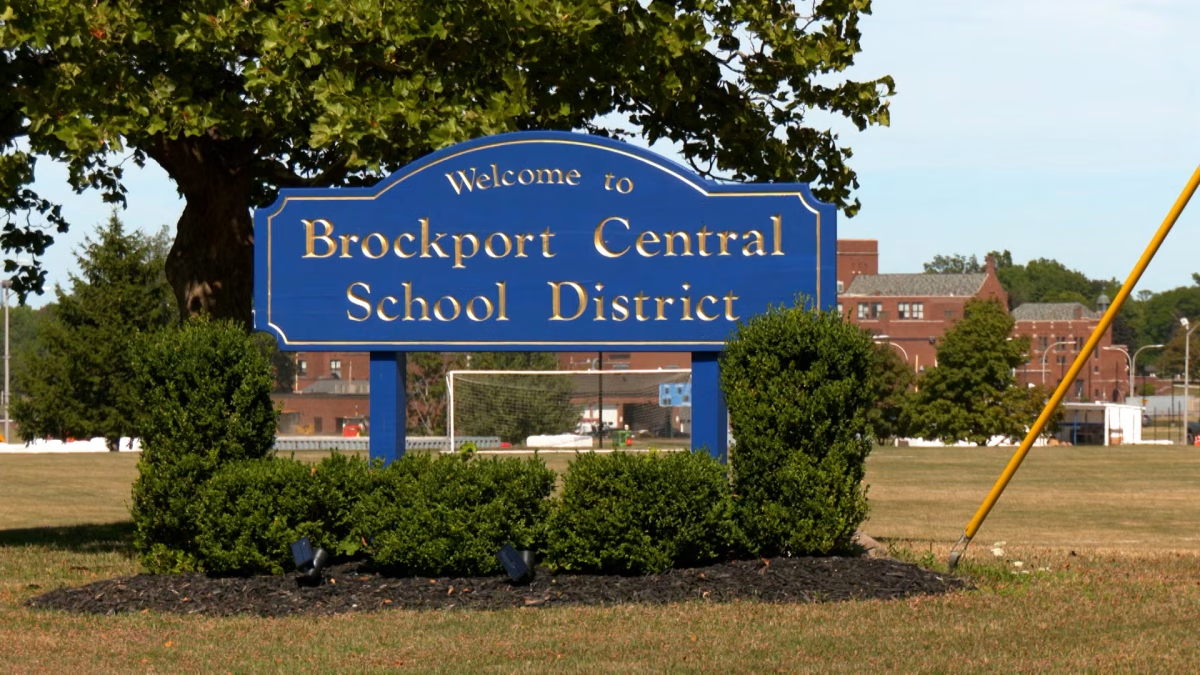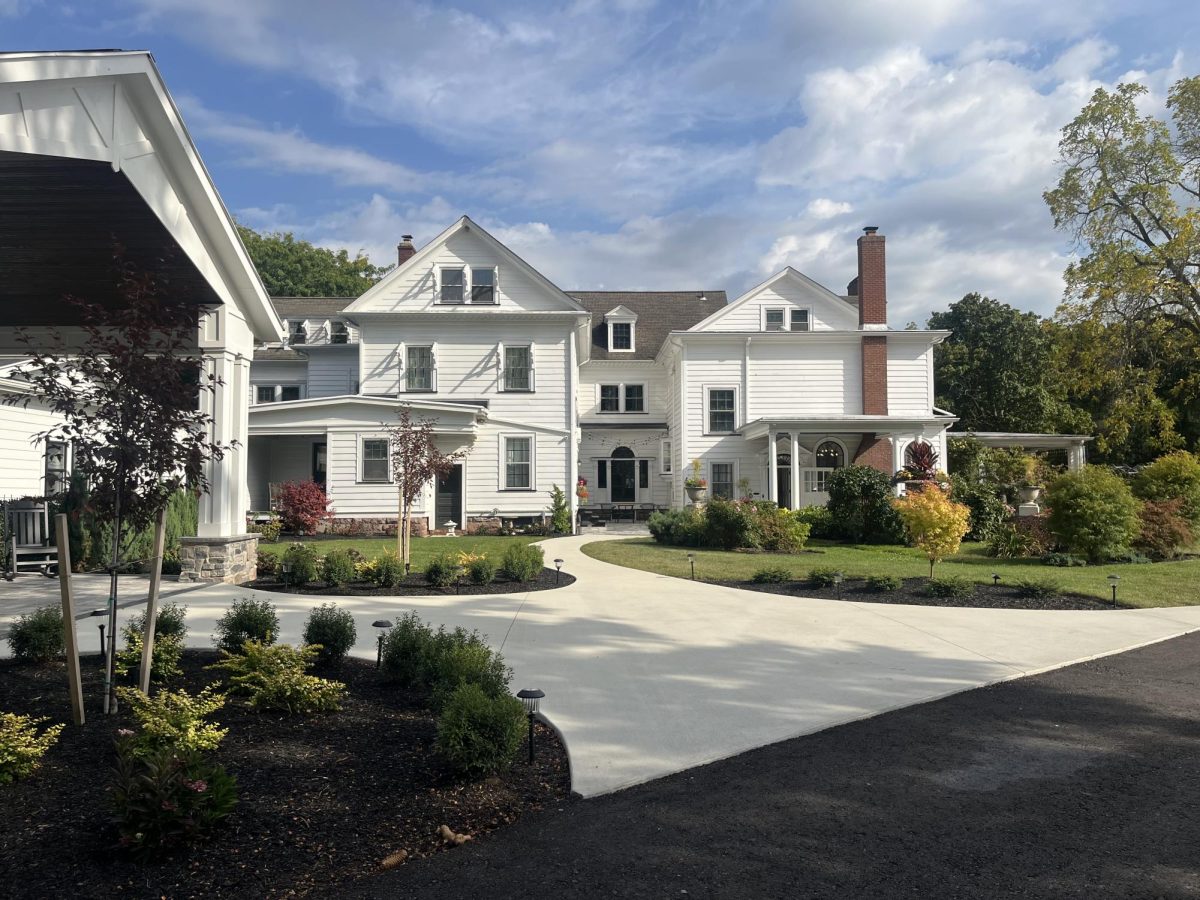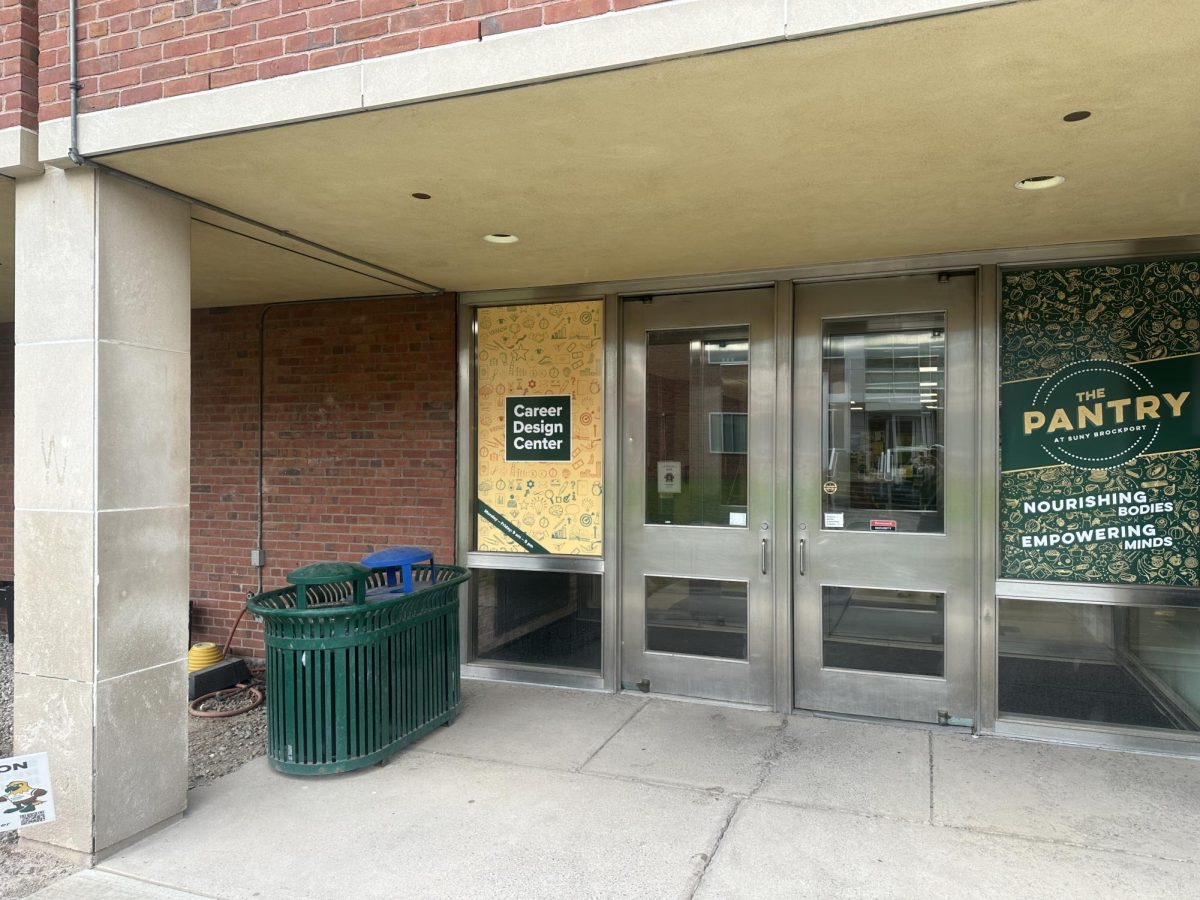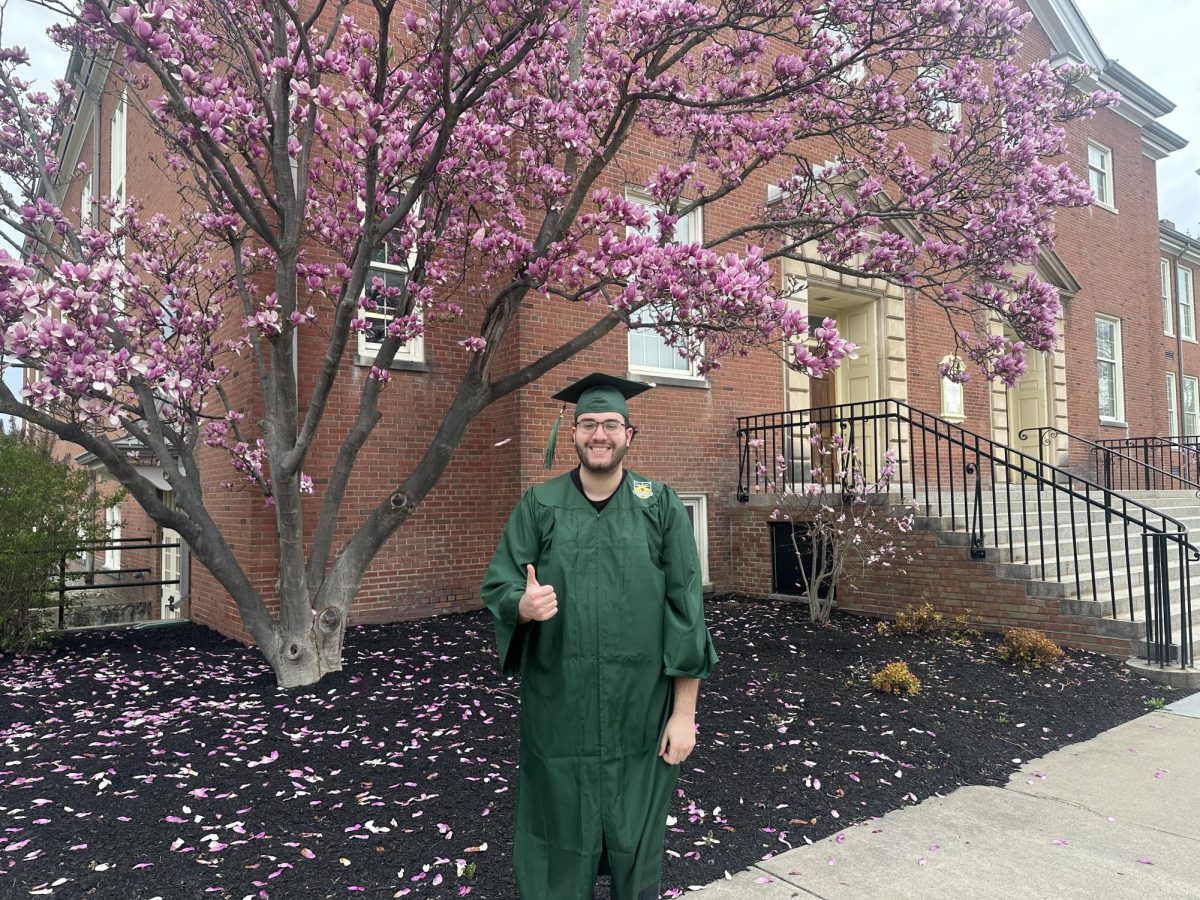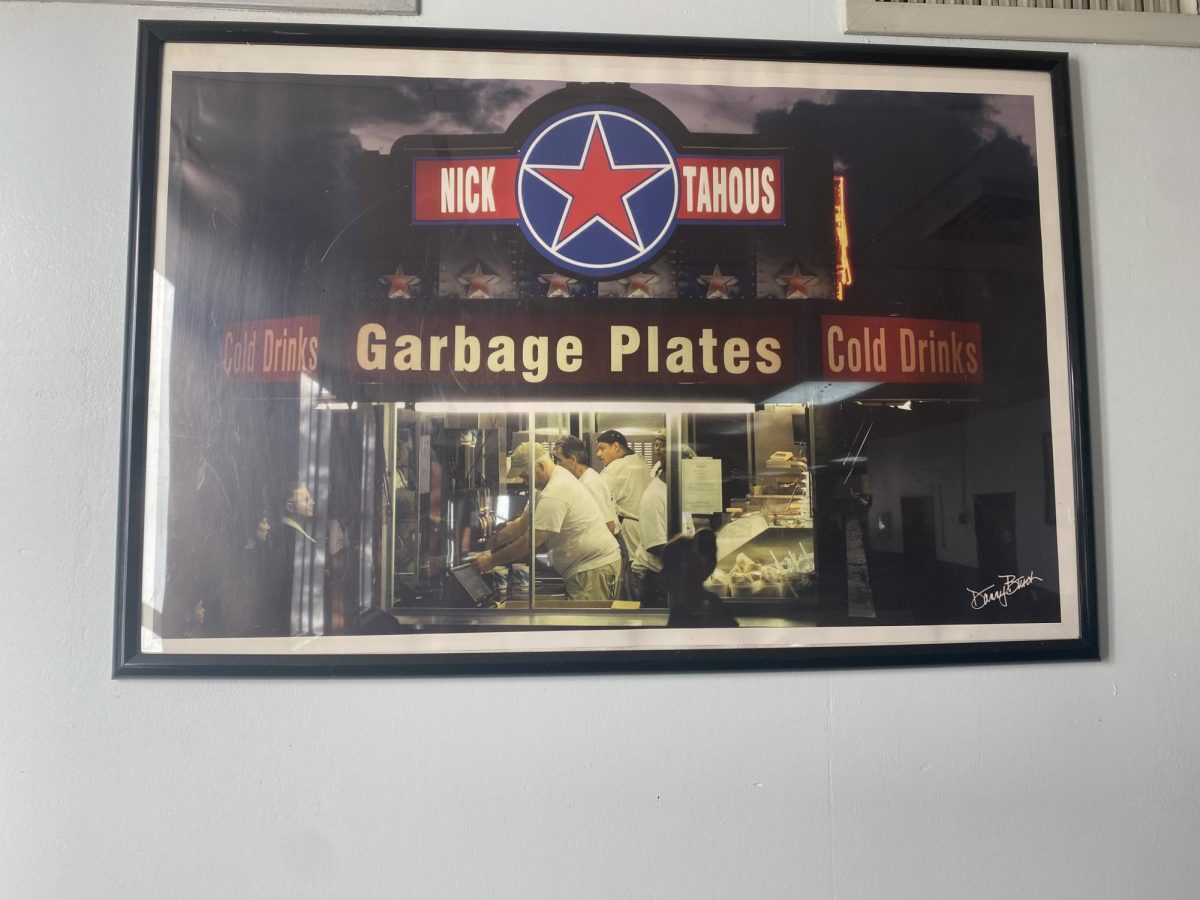Brockport, N.Y. – With graduation just weeks away, students across the Brockport area are preparing to walk the stage, but many are walking into uncertainty.
While commencement marks the end of college, it also signals the beginning of a job search- an often stressful and uncertain process for many graduates. From delayed responses to unrealistic experience requirements, students are finding that securing full-time work after college isn’t as straightforward as they hoped.
Despite reports showing nearly 90% of employers plan to increase or maintain hiring levels for the Class of 2025, job projections have fallen slightly compared to previous years according to the NACE Job Outlook 2025.

Opportunities exist, but many graduating seniors are struggling with long application timelines, unrealistic qualifications and mounting mental stress as they try to navigate their future.
Stephanie Learn, Associate Director of Brockport’s Career Design Center, doesn’t sugarcoat the situation.
“The job market is challenging. Everything is a little difficult. I do think that there are jobs out there but what we are seeing is that students that have social capital and internships are having an easier time finding employment,” Learn said.
National data supports this. According to the NACE Research Report 2025, nearly 65% of employers report using skills-based hiring most of the time with problem-solving, teamwork and communication being the most sought-after attributes.

For graduating senior Kurtis Walker, the pressure is hitting hard. Leaving Brockport with a degree in computer information systems brings no relief.
“I feel nervous. That’s the big thing. It’s the real time in your life when you need to get a job and start taking care of things,” Walker said.
Walker hasn’t applied to many positions yet, choosing to focus on completing his degree first.
“It is a lot easier to tell employers that you have your diploma and you are ready to work,” Walker said.
But even students who start early aren’t seeing results right away. Erin Patanella, a journalism and broadcasting major with a minor in sociology at SUNY Brockport is finishing her degree in just three years. Despite applying to jobs months ago, she’s still waiting to hear back.
“I applied to a bunch of jobs over winter break and the beginning of January. I found that even though I started so early, I didn’t hear back from any jobs until maybe March. Even then, there’s a two, almost three-month layover from when I applied to when I got a response. All of them were nos,” Patanella said.
This reflects broader trends. According to the Monster Work Watch State of the Grad 2025 report, 37% of grads expect their job search to last four to six months, and 84% have applied to roles they knew weren’t the right fit out of desperation.
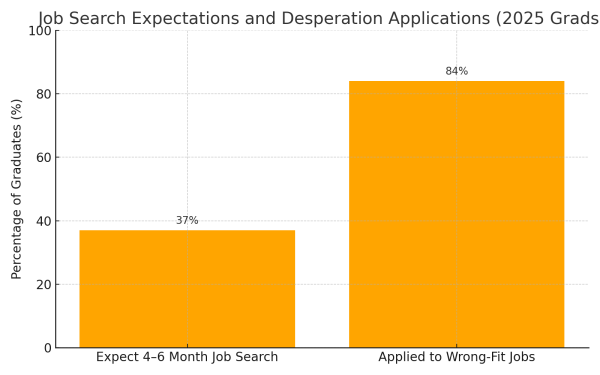
“I definitely try to only apply to jobs that interest me but especially after getting so many denials, I felt like maybe I should loosen my limitations,” Patanella said.
One major frustration among students is the common demand for two to four years of experience in entry-level roles.
“The job market is really awful right now. How am I going to get 2-4 years of experience if I’ve been in school?” Walker said.
Patanella echoes this frustration.
“Once a job pays above $19 an hour, they expect you to have three years of experience in the field already on top of a degree. For someone graduating early like me, I already technically have less experience than someone who has stayed the full four years,” Patanella said.
Findings from Recruitonomics and S&P Global report that college grads face more unemployment than other groups, especially as industries like tech, finance and media tighten hiring while non-degree jobs remain more in demand.
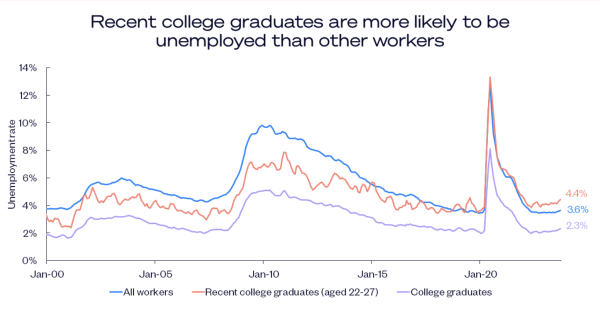
Both Walker and Patanella are encountering bloated job listings with overwhelming expectations.
“For some jobs, the description sounds simple and then you start reading it, and it’s like not only do they want you to be a writer, but they also want you to do all of their social media, and all of their outreach, and send all their emails,” Patanella said.
Patanella’s concerns are reiterated in the Future of Jobs Report 2025, which forecasts that nearly 40% of current skill sets will become outdated by 2030 and emphasizes the need for creative, resilient and adaptable workers.

Learn said that students today face a drastically different job market than a few years ago.
“You can’t just go to class and expect to walk out with a job. There really are some things you need to participate in over time. Internships are still one of the most important things a student can do,” Learn said.
Internship experience continues to be one of the strongest predictors of employment success. Students without those experiences feel the gap.
Beyond the logistical challenges, the emotional toll of the job hunt is significant.
“The job search has been weighing on me. It’s always in the back of my mind that I need to get a job,” Walker said.
Patanella has also experienced discouragement in her job search.
“Thinking that I’m qualified for some jobs and then to see the initial shock of like, ‘you weren’t even selected for the first round of interviews’ can be upsetting,” Patanella said.
Learn believes that the emotional weight students experience is somewhat universal.
“I think anxiety is the overarching feeling that students were having and it comes from so many different places like self-confidence and fear,” Learn said.
Despite the fear and frustration, students are trying to stay hopeful.
“It’s nervousness but it’s excited nervousness. I’ve been going to school for 16 years and I want to see what it’s like to have a full-time job,” Walker said.
Patanella also tries to maintain a forward-thinking mindset.
“Not being happy with whatever I end up doing is a fear… but I’m going to have the mindset that it’s a stepping stone,” Patanella said.
As the Class of 2025 walks the stage, they know that beyond the cap and gown lies a complex labor landscape filled with uncertainty, competition and change. But students are preparing to navigate with resilience, adaptability and hope.

